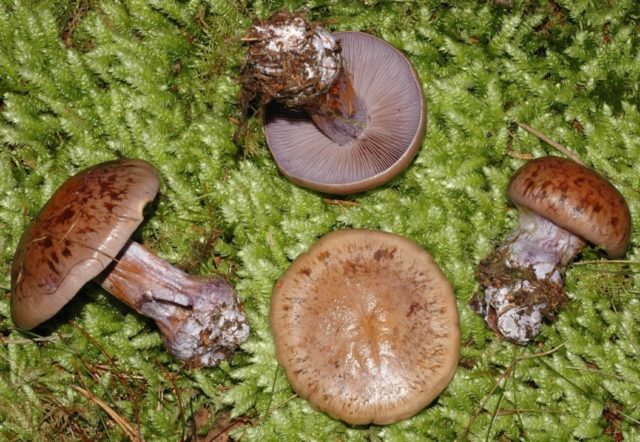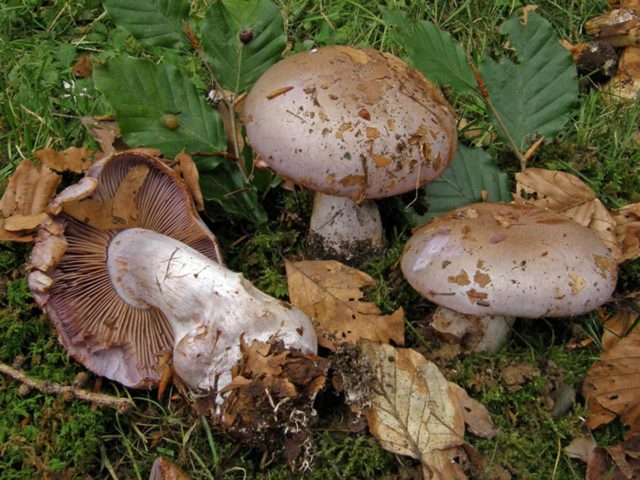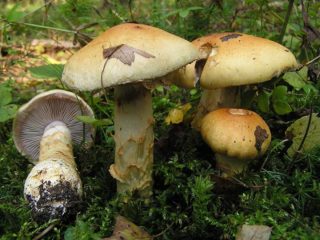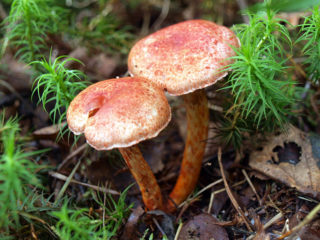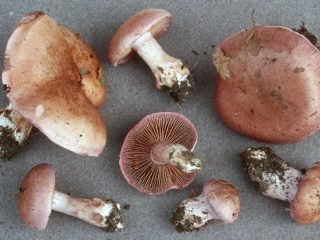Content
The blood-reddish webcap is far from the most popular species of the webcap family. The Latin name is Cortinarius semisanguineus. There are a number of synonyms for this variety: the spider web is half-red, the spider web is blood-red, the spider web is red-plate.
Description of the blood-reddish spider web
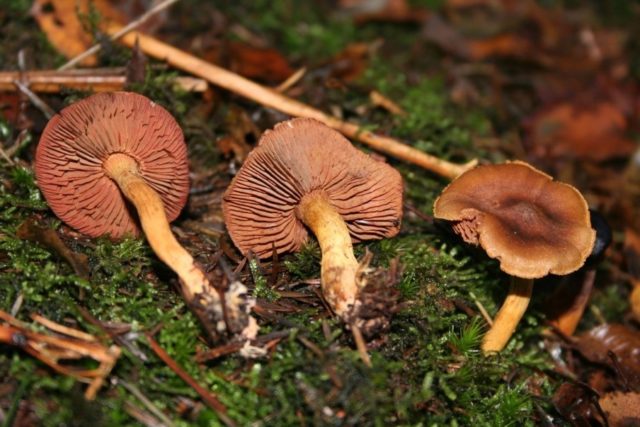
Belongs to the group of inedible mushrooms
The fruiting body of the described gift of the forest is presented in the form of a small cap and a leg. The pulp is thin, brittle, yellowish-brown or ocher in color. It emits an unpleasant aroma reminiscent of iodoform or radish. Also has a bitter or insipid taste. Spores are almond-shaped, slightly rough, ellipsoidal. Rusty brown spore powder.
Description of the hat
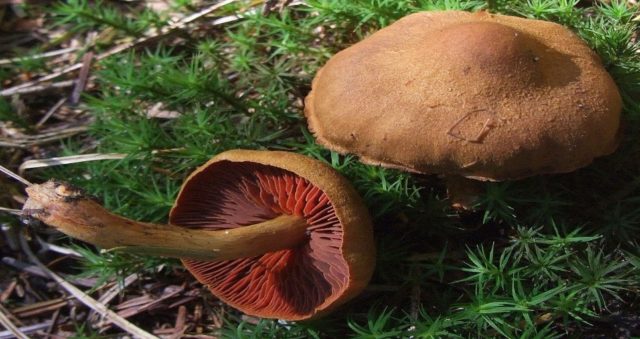
These mushrooms prefer to grow in coniferous forests.
At the initial stage of maturation, the cap of the blood-reddish spider web is bell-shaped. It opens rather quickly and takes on a flat shape with a small tubercle located in the center. The surface of the cap is velvety, dry, leathery. Colored in olive brown or yellowish brown shades, and in adulthood becomes reddish brown. The size in diameter varies from 2 to 8 cm. On the underside there are rather frequent plates attached to the teeth. In young specimens, they are brightly saturated red, but after maturation of the spores they acquire a yellow-brown tone.
Leg description
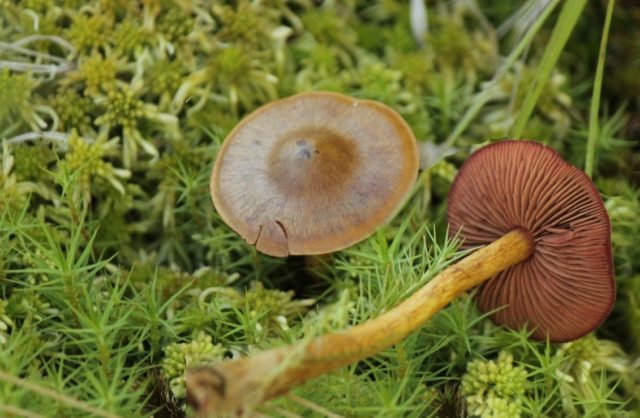
Such specimens grow from August to September.
The leg is cylindrical, slightly widened at the bottom. Its length varies from 4 to 10 cm, and its thickness is 5-10 mm in diameter. Quite often it is curved. The surface is dry, velvety, covered with barely noticeable remnants of the bedspread. The leg of a young specimen is yellow-buffy, with age it becomes rusty brown, and spores form on its surface.
Where and how it grows
Most often, the species under consideration grows in coniferous forests, forming mycorrhiza with spruce or pine. Prefers sandy soils and moss litter. Active fruiting occurs in the period from August to September. In Russia, this gift of the forest is widespread in regions with a temperate climate. In addition, it can be found in Western and Eastern Europe, as well as North America. https://youtu.be/oO4XoHYnzQo
Is the mushroom edible or not
The species in question belongs to the group of inedible mushrooms. Despite the fact that it does not contain toxic substances, it is not edible due to its unpleasant odor and bitter taste.
Doubles and their differences
In appearance, the species under consideration is most similar to the following gifts of the forest:
- Crimson webcap - is a conditionally edible specimen.It differs from the blood-reddish bluish pulp with a pleasant aroma. In addition, you can recognize the double by the purple leg.
- Big webcap - belongs to the group of edible mushrooms. The hat is painted in a gray-purple color, in young specimens the flesh is lilac, which is a distinctive feature of a bloody
Conclusion
The blood-reddish webcap can be found not only in Russia, but also abroad. Despite its wide distribution, this variety is not very popular with mushroom pickers, since it is inedible. However, such a specimen can be used for dyeing wool in a reddish-pink color.
